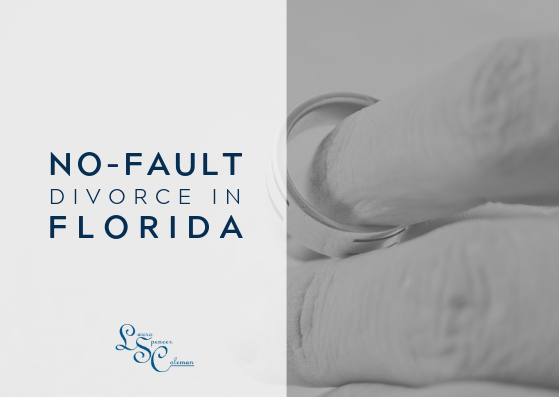What Should You Do If You’re Contemplating Divorce in Florida?
- By Laura Spencer Coleman
- •
- 03 Jul, 2018
- •

Divorce is one of the most devastating things that can happen in our lives. It’s emotionally, physically and financially exhausting. It changes your life in scary ways.
But it can also be the best choice for your own health and happiness.
If you’re contemplating divorce in Florida, here’s what you should know.
Know The Financial Costs Of Filing
In the state of Florida, the cost to merely file for a Simplified Dissolution of Marriage is $408.00, plus a $10.00 filing fee.
The cost is the same for a contested divorce, but additional fees and costs may apply if you are required to take a family stabilization course. The costs are also higher if you and your ex-spouse are fighting over property.
To be eligible for a simplified filing in Florida, you and your ex-spouse must have both lived in the state of Florida for at least 6 months prior to the filing. You must also be in complete agreement about asset and debt division following the divorce. You must have no minor or dependent children between you. Finally, you must both be willing to attend a final hearing together for the marriage to be officially dissolved.
Unfortunately, many marriages are simply not eligible for a simplistic divorce proceeding. Children, emotional acrimony and mutual distrust between former spouses make it impossible to take the simple route.
Know the Timeline for Response
If you are the petitioner for your own divorce, your estranged spouse is the respondent. The respondent in a divorce filing has 20 days to answer a petition for dissolution of marriage following the date of being served.
If your estranged spouse does not answer your petition within 20 days of being served, you may file a motion for default. This may allow you to set an earlier final hearing.
Know Florida Laws On Property Division
Florida is an equitable distribution state. Unlike states like California or Texas (which use community property rules in divorce cases), marital property in equitable distribution states is split based on what the court deems fair, rather than on a strict 50/50 split.
The court recognizes both marital and individual property when determining what each spouse receives in an equitable distribution state. Separate property is defined as any property that was acquired before the marriage. Marital property is considered any property that was acquired during the marriage. However, these parameters may be adjusted based on other factors determined by the judge.
Property division in a divorce is determined by a number of things, including:
- The duration of the marriage
- Each spouse’s individual contribution to the marriage, including paid work and/or homemaking services
- Economic circumstances of each spouse (gaps in employment, time off to care for children, ability to earn income and support oneself post-divorce)
- Contribution by each spouse to the other’s personal education or professional advancement
Shorter marriages have a different standard for marital property than longer-term unions do.
Find a Trustworthy Florida Divorce Attorney
If you’re like most individuals seeking a divorce, you’re intimidated and confused by the entire process. You deserve a divorce attorney that can guide you through the legal process and ensure that you aren’t taken advantage of.
Laura Spencer Coleman is one of Florida’s leading divorce attorneys, with nearly 20 years of experience fighting for Florida residents like you.
Contact our law offices to learn more about our services today.













